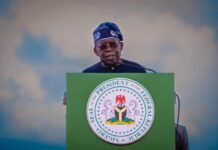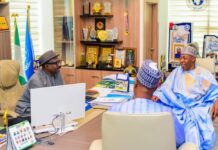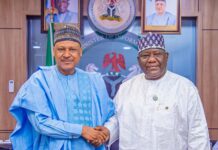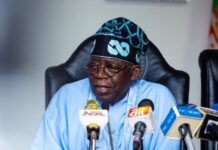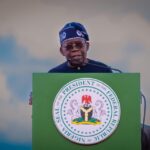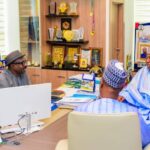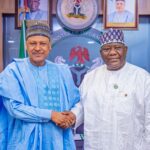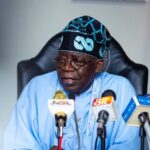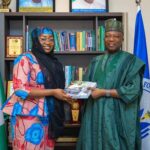- As Stakeholders discuss strategies to secure Kwara
Kwara State Governor AbdulRahman AbdulRazaq on Thursday said social inclusion, youths empowerment, and timely administration of justice are key to fostering peace and development in any society.
“We will definitely continue to give the necessary and complementary logistic support to our security agencies. However, we believe that security is a broad concept that goes beyond arming the various security agencies or hanging cameras everywhere,” according to AbdulRazaq’s address at the one-day multi-stakeholder security dialogue in Ilorin, the state capital.
“We feel strongly that securing our society requires inclusion and empowerment of all the segments of our society. It involves guaranteeing social justice for everyone. It involves ensuring that no child is left behind in every developmental agenda. And it involves making sure that the justice system is not unduly slow or deliberately tilted against anyone.”
He said the dialogue was a follow up to a recent security meeting of the Governors in the north central region and security developments in other parts of the country.
AbdulRazaq commended the security agencies and traditional rulers for their efforts to keep the peace in Kwara.
He said the administration is introducing social investment programmes to ensure that no one is left behind and guarantee peace and harmony.
“Hunger and poverty are catalysts for crimes and they must be addressed headlong,” the Governor said, adding that the dialogue had been called to harvest the views of all the stakeholders in the state.
Keynote speakers Prof Hassan Salihu of the University of Ilorin and Prof Dakas Dakas of University of Jos said Kwara is peaceful but must be proactive to respond to security threats nearby and early warning signs.
They commended the government for the security dialogue which they described as timely.
While Dakas called for a regime of accountability, respect for rules of engagement, and more support for the security agencies, Salihu called on the public to see security as a joint project to be owned by all.
Salihu said politicians must learn to draw the line between politics, campaign period and governance, calling on all stakeholders to sidestep their differences and build a sustainable system that works for all.
The experts also called for more capacity building for the security agencies and other personnel of government in charge of security matters.
Security chiefs in the state applauded the dialogue initiative but called on the masses to always speak up when they see danger signs around them.
Directorate of State Service chief Steve Ajege said the dialogue underpins AbdulRazaq’s effort to further secure the state.
He called on parents to revisit the issue of family value and discipline and to work with security agencies to cut crime rate in the society.
Police commissioner Kayode Egbetokun said community policing is underway and called for support for the initiative that he said would rely heavily on local personnel and intelligence gathering.
Other security agencies spoke in similar pattern, with the NDLEA calling on parents to pay attention to the activities of their children and lamenting the rising rate of drug abuse.
The Emir of Ilorin and chairman of the state traditional council Alhaji Ibrahim Sulu Gambari called on the Nigerian government to make better use of the traditional institutions as did the colonial masters.
Gambari commended the government for the dialogue, calling for better welfare for members of the security agencies and funding for traditional institutions to boost communal peace.
Prof Lanre Yusuf and Bishop Sunday Adewole, who represented the Muslim and Christian religious communities, urged the government to build its security strategies around the traditional and religious institutions.
The two religious leaders called for tolerance and harmony and restoration of religious and family values.
The dialogue drew participants from across all sectors of the state, with the heads of the three tiers of the government, leading traditional rulers, labor chiefs and youths leaders in attendance.






